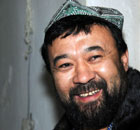Foreign and Military Affairs
China-Sudan bio-energy project launched
(Xinhua)
Updated: 2011-01-30 06:41
 |
Large Medium Small |
KHARTOUM - Sudanese Vice-President Ali Osman Mohamed Taha on Saturday inaugurated a bio-energy project that will provide an alternative source of energy and improve the local environment.
The project, which is part of a partnership between Sudan and China, has been established at al-Selait area, some 25 km east of the Sudanese capital, Khartoum.
It consists of many units for producing bio-fuel and energy for lighting purposes using local sources of animal waste.
"We have established 75 units of bio-energy in all parts of Sudan and they are operating satisfactorily," Chinese Ambassador to Khartoum Li Chengwen told Xinhua.
"This project is characterized by the fact that it is less costly and easier to use besides its guaranteed continuation. It helps farmers to develop agriculture and resolves the issue of wood cutting, which protects environment," the ambassador said.
The Chinese ambassador regarded the project as another good example of the deeply rooted and progressive China-Sudan ties in a way that served the interests of the two peoples.
Al-Wasila Hassan Manofaly, Director of Al-Selait bio-energy project, told Xinhua: "This project is important and affirms the importance of the cooperation between Sudan and China."
He said the al-Selait project units were models that would be later used in all farms of the project.
He said the use of animal waste would improve the environment for both man and animal.
The bio-energy project in Sudan constitutes one of the energy sources derived from plant or animal wastes and it is one of the most important sources of renewable energy.
The project is expected to be expanded to other areas of Sudan, particularly those areas lacking electricity supply.
Also attending the launch was Khartoum State Governor Abdel-Rahman Al-Khader.







